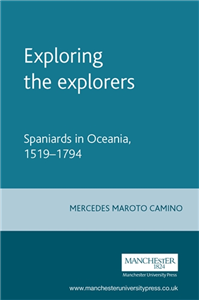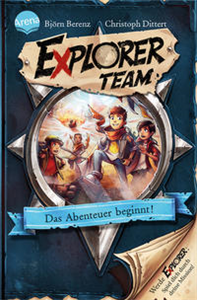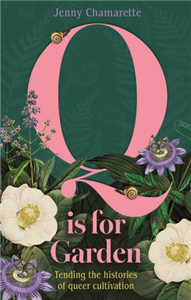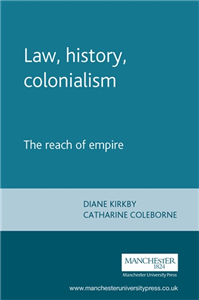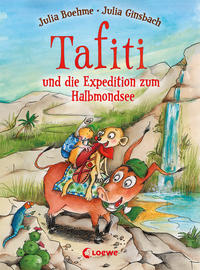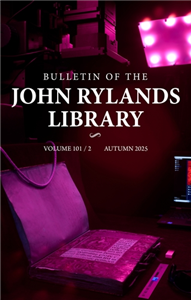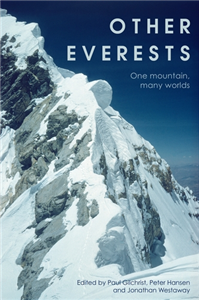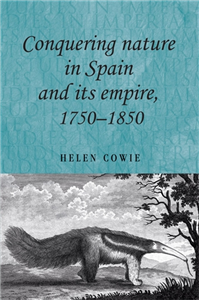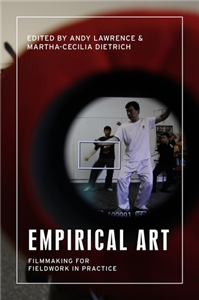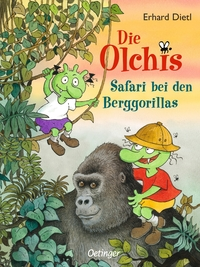Your Search Results
-
Springer Nature
For over 175 years Springer Nature has been advancing discovery by providingthe best possible service to the whole research community.We help researchers uncover new ideas, makesure all the research we publish is significant, robust and stands up to objectivescrutiny, that it reaches all relevant audiences in the best possible format, and can be discovered, accessed, used, re-used and shared.Wesupport librarians and institutions with innovations in technology and data; and providequality publishing support to societies. As a research publisher, Springer Nature is home to trusted brands including Springer, Nature Research, BMC, Palgrave Macmillan and Scientific American. https://group.springernature.com/gp/group
View Rights Portal
-
Promoted ContentHumanities & Social SciencesMarch 2017
Representing Africa
Landscape, exploration and empire in Southern Africa, 1780–1870
by John McAleer, Andrew Thompson, John M. MacKenzie
Southern Africa played a varied but vital role in Britain's maritime and imperial stories: it was one of the most intricate pieces in the British imperial strategic jigsaw, and representations of southern African landscape and maritime spaces reflect its multifaceted position. Representing Africa examines the ways in which British travellers, explorers and artists viewed southern Africa in a period of evolving and expanding British interest in the region. Drawing on a wide range of archival sources, contemporary travelogues and visual images, many of which have not previously been published in this context, this book posits landscape as a useful prism through which to view changing British attitudes towards Africa. Richly illustrated, this book will be essential reading for scholars and students interested in British, African, imperial and exploration history, art history, and landscape and environment studies.
-
Promoted ContentHumanities & Social SciencesFebruary 2009
Exploring the explorers
Spaniards in Oceania, 1519–1794
by Mercedes Camino
Exploring the Explorers: Spaniards in Oceania 1519-1794 is the first study of cross-cultural engagements between the indigenous peoples of the Pacific and Spanish explorers during the early modern period. Bridging disciplines, the book sets out to analyse in detail eight main voyages and their aims and outcomes, looking at the different patterns of contact and the use of gift-giving and bartering as social cement. This fascinating and original study will broaden the investigation of world exploration and Pacific ethnography, as many of the sources from these voyages are scarcely known and have not been translated before. It will also expand an understanding of Spanish and world exploration, developing the history of the Spanish Pacific beyond the long-standing colony of the Philippines. The study will be of particular interest to scholars and students of Early Modern European history as well as anthropologists, ethnographers and those interested in stories of exploration and discovery throughout history. ;
-
 Trusted Partner
Children's & YA
Trusted Partner
Children's & YAExplorer Team (1). The Adventure Begins!
by Björn Berenz / Christoph Dittert
Become an explorer! Go with Lias on an exciting mission and solve the puzzles that will lead you to your goal. Eventually you must decide: how will the adventure continue? 3 paths – 3 adventures – which of them is for YOU? Join Lias, Mojo and Cookie on a mission to the Himalayas: together they must find out what has happened to Lias’s father. He disappeared six months ago and the only thing he left behind was his expedition diary, which is full of strange clues and puzzles. The reader will be able to move onto the next stage only if you can decipher them. A great adventure awaits you! And you decide In the end, you must decide: How should the adventure continue for you and the Explorer Team? Hunt with Lias through the forgotten world. Go with Tashi to discover the eternal ice or follow Cookie and Mojo through fire and lava. You will have to choose which of the Explorers you want to accompany on the next adventure.
-
 Trusted Partner
Biography & True StoriesJuly 2026
Trusted Partner
Biography & True StoriesJuly 2026Q is for garden
Tending the histories of queer cultivation
by Jenny Chamarette
A bold, tender exploration of how queerness and nature entwine - and what happens when we step beyond the binaries that fence us in. There is a Q in garden, but you can't always see it. When Jenny Chamarette faced a devastating health crisis, they found themselves unmoored from the rules of gender, sexuality and productivity. In a small South London garden, Jenny began to imagine another way of living: porous, unruly, rooted in the lessons of soil and plant life. Gardens, like identities, are usually bounded - but what if those limits can be re-drawn? Blending memoir and cultural criticism, this book asks whether the categories we inherit - colonial, patriarchal, conventions of sexuality and gender - still serve us, or whether they confine us. From illness and recovery to queer love and ecological wonder, Q is for garden invites readers to reimagine how we inhabit land, culture and each other. An eloquent work of nature writing and queer thought, Q is for garden digs into the rich history of queer gardeners, botanists, artists and agriculturalists. It offers a hopeful vision of belonging, if we are curious enough to unearth it.
-
 Trusted Partner
Humanities & Social SciencesFebruary 2017
Trusted Partner
Humanities & Social SciencesFebruary 2017Conquering nature in Spain and its empire, 1750–1850
by Helen Cowie, Andrew Thompson, John M. MacKenzie
This book examines the study of natural history in the Spanish empire in the years 1750-1850. During this period, Spain made strenuous efforts to survey, inventory and exploit the natural productions of her overseas possessions, orchestrating a serries of scientific expeditions and cultivating and displaying American fauna and flora in metropolitan gardens and museums. This book assesses the cultural significance of natural history, emphasising the figurative and utilitarian value with which eighteenth-century Spaniards invested natural objects, from globetrotting elephants to three-legged chickens. It considers how the creation, legitimisation and dissemination of scientific knowledge reflected broader questions of imperial power and national identity. This book will be of particular interest to scholars and students of Spanish and Latin American History, the History of Science and Imperial Culture
-
 Trusted Partner
Trusted Partner
-
 Trusted Partner
Humanities & Social SciencesMarch 2017
Trusted Partner
Humanities & Social SciencesMarch 2017Law, history, colonialism
The reach of empire
by Diane Kirkby, Andrew Thompson, Catharine Coleborne, John M. MacKenzie
Drawing on the latest contemporary research from an internationally acclaimed group of scholars, Law, history, colonialism bring together the disciplines of law, history and postcoloinial studies in a singular exploration of imperialism. In fresh, innovative essays from a range of disciplinary backgrounds, this collection offers exciting new perspectives on the length and breadth of empire. As issues of native title, truth and reconciliation commission, and access to land and natural resources are contested in courtrooms and legislation of former colonies, the disciplines of law and history afford new ways of seeing, hearing and creating knowledge. Issues explored include the judicial construction of racial categories, the gendered definitions of nation-states, the historical construction of citizenship, sovereignty and land rights, the limits to legality and the charting of empire, constructions of madness among colonised peoples, reforming property rights of married women, questions of legal and historical evidence, and the rule of law. This collection will be an indispensable reference work to scholars, students and teachers.
-
 Trusted Partner
Humanities & Social SciencesApril 2010
Trusted Partner
Humanities & Social SciencesApril 2010Law, history, colonialism
The reach of empire
by Diane Kirkby, Andrew Thompson, Catharine Coleborne, John Mackenzie
Drawing on the latest contemporary research from an internationally acclaimed group of scholars, Law, history, colonialism brings together the disciplines of law, history and post-colonial studies in a singular exploration of imperialism. In fresh, innovative essays from a range of disciplinary backgrounds, this collection offers exciting new perspectives on the length and breadth of empire. As issues of native title, truth and reconciliation commissions, and access to land and natural resources are contested in courtrooms and legislation of former colonies, the disciplines of law and history afford new ways of seeing, hearing and creating knowledge. Issues explored include the judicial construction of racial categories, the gendered definitions of nation-states, the historical construction of citizenship, sovereignty and land rights, the limits to legality and the charting of empire, constructions of madness among colonised peoples, reforming property rights of married women, questions of legal and historical evidence, and the rule of law. This collection will be an indispensable reference work to scholars, students and teachers. ;
-
 Trusted Partner
May 2021
Trusted Partner
May 2021The Sky!
Exploring the world above us
by Rolf Heilmann
We‘re in heaven when we‘re in love, admire the stars and Milky Way on crystal-clear nights, and look up to attempt to forecast the weather. We have always been fascinated and shaped by the sky, and even though science may have demythologised it, nonetheless it uses evernew technology to gaze deeper and farther into the universe and is constantly making new discoveries. Rolf Heilmann picks us up with our everyday experiences and questions about the sky, and takes us along on a fascinating journey through the times – from the worlds of the gods and art, philosophy and technology to the exploration of nearby and distant galaxies and the last secrets of science.
-
 Trusted Partner
Humanities & Social SciencesMarch 2017
Trusted Partner
Humanities & Social SciencesMarch 2017The Arctic in the British imagination 1818–1914
by Andrew Thompson, John M. MacKenzie, Rob David
The Arctic region has been the subject of much popular writing. This book considers nineteenth-century representations of the Arctic, and draws upon an extensive range of evidence that will allow the 'widest connections' to emerge from a 'cross-disciplinary analysis' using different methodologies and subject matter. It positions the Arctic alongside more thoroughly investigated theatres of Victorian enterprise. In the nineteenth century, most images were in the form of paintings, travel narratives, lectures given by the explorers themselves and photographs. The book explores key themes in Arctic images which impacted on subsequent representations through text, painting and photography. For much of the nineteenth century, national and regional geographical societies promoted exploration, and rewarded heroic endeavor. The book discusses images of the Arctic which originated in the activities of the geographical societies. The Times provided very low-key reporting of Arctic expeditions, as evidenced by its coverage of the missions of Sir John Franklin and James Clark Ross. However, the illustrated weekly became one of the main sources of popular representations of the Arctic. The book looks at the exhibitions of Arctic peoples, Arctic exploration and Arctic fauna in Britain. Late nineteenth-century exhibitions which featured the Arctic were essentially nostalgic in tone. The Golliwogg's Polar Adventures, published in 1900, drew on adult representations of the Arctic and will have confirmed and reinforced children's perceptions of the region. Text books, board games and novels helped to keep the subject alive among the young.
-
 Trusted Partner
March 2022
Trusted Partner
March 2022Tafiti und die Expedition zum Halbmondsee
by Julia Boehme / Julia Ginsbach
Tafiti and the Expedition to Half Moon Lake
-
 Trusted Partner
Humanities & Social SciencesDecember 2025
Trusted Partner
Humanities & Social SciencesDecember 2025Bulletin of the John Rylands Library 101/2
Imaging Heritage Science Initiatives at The John Rylands Research Institute and Library
by Stefan Hanß, James Robinson
The John Rylands Library houses one of the finest collections of rare books, manuscripts and archives in the world. The collections span five millennia, have a global reach and cover a wide range of subjects, including art and archaeology; economic, social, political, religious and military history; literature, drama and music; science and medicine; theology and philosophy; travel and exploration. For over a century, the Bulletin of the John Rylands Library has published research that complements the Library's special collections. An electronic edition of this issue is freely available under a Creative Commons (CC BY-NC-ND) licence.
-
 Trusted Partner
Lifestyle, Sport & LeisureNovember 2024
Trusted Partner
Lifestyle, Sport & LeisureNovember 2024Other Everests
One mountain, many worlds
by Paul Gilchrist, Peter Hansen, Jonathan Westaway
A hundred years after the tragic 1924 British Everest expedition, this collection explores the wider social and cultural history of the mountain. Mount Everest looms large in the popular imagination. Since the deaths of mountaineers George Mallory and Andrew Irvine in 1924, histories of the mountain have overwhelmingly focused on the mythologies of western male adventure and conquest. But there are many more stories waiting to be told. Other Everests brings together new voices and perspectives on the historical and cultural significance of Everest in the modern world. The book shines a light on the overlooked role of local people and high-altitude workers, while also revealing the significant contributions women have made to climbing the mountain and writing its history. It explores the depiction of Everest in a range of media and investigates how the forces of nationalism and commercialism have shaped many different 'Everests'. After years of exploitation, Indigenous people are now reclaiming Mount Everest in the twenty-first century. Other Everests re-examines the past and present of the world's highest peak, presenting an exciting vision of what Everest might become in the future.
-
 Trusted Partner
September 2011
Trusted Partner
September 2011Conquering nature in Spain and its empire, 1750–1850
by Helen Cowie, Andrew Thompson, John Mackenzie
This book examines the study of natural history in the Spanish empire in the years 1750-1850. During this period, Spain made strenuous efforts to survey, inventory and exploit the natural productions of her overseas possessions, orchestrating a serries of scientific expeditions and cultivating and displaying American fauna and flora in metropolitan gardens and museums. This book assesses the cultural significance of natural history, emphasising the figurative and utilitarian value with which eighteenth-century Spaniards invested natural objects, from globetrotting elephants to three-legged chickens. It considers how the creation, legitimisation and dissemination of scientific knowledge reflected broader questions of imperial power and national identity. This book will be of particular interest to scholars and students of Spanish and Latin American History, the History of Science and Imperial Culture ;
-
 Trusted Partner
Humanities & Social SciencesJuly 2025
Trusted Partner
Humanities & Social SciencesJuly 2025Empirical art
Filmmaking for fieldwork in practice
by Andy Lawrence, Martha-Cecilia Dietrich
Empirical art: Filmmaking for fieldwork in practice is an insightful exploration of what the craft of filmmaking brings to social science research. Providing creative avenues on how to narrate encounters, relationships, and experiences during fieldwork, this comprehensive volume offers a rich tapestry of theoretical explorations and explorative methodologies. Skilfully connecting the worlds of ethnography, art and cinema, the contributors in this book act as a compass for filmmakers and researchers venturing to use a camera and microphone to relate and narrate their research collaborations and fieldsites. Drawing from the authors' extensive experience in disciplines like social anthropology, environmental humanities, and political science, "Empirical Art" breaks down the intricate process of crafting ethnographic films that departs from the researcher's subjectivity. Covering aspects of filmmaking from conceptualisation to production and distribution, readers are equipped with a treasure trove of collaborative techniques, innovative approaches, and ethical considerations necessary to generate and examine storytelling practices in contemporary fields of study. The authors discuss the significance of the multiple roles that technologies of filmmaking play in reflecting on cultural practices, social dynamics, and (beyond) human storytelling and their transformative potentials. Whether a seasoned filmmaker, an aspiring ethnographer, or an academic seeking new dimensions for their research, Empirical Art serves as a guide to integrating visual storytelling, cinema craft and empirical research.
-
 Trusted Partner
August 2014
Trusted Partner
August 2014Die Olchis. Safari bei den Berggorillas
by Erhard Dietl, Erhard Dietl
In "Die Olchis. Safari bei den Berggorillas" nehmen Erhard Dietl und seine grünen, unkonventionellen Helden die Leser*innen mit auf ein Abenteuer nach Afrika. Gustav Grünspecht, ein Tierforscher aus Schmuddelfing, bittet die Olchis um Hilfe, denn seine Frau Gerda, die sich um die bedrohten Berggorillas kümmert, ist verschwunden. Vor Ort entdecken die Olchis schnell, dass nicht nur Gerda in Gefahr ist, sondern auch der Lebensraum der Berggorillas durch die Pläne eines großen Ölkonzerns bedroht wird. Ein dubioser Geschäftsmann namens Mr Trash scheint hinter dem Verschwinden von Gerda und der Bedrohung der Gorillas zu stecken. Mit typischem Olchi-Mut und viel Wortwitz stellen sich die Olchis gegen die Zerstörung der Natur und setzen sich für den Schutz der Tiere ein. Dieses Buch bietet neben Spannung und Humor auch eine kindgerechte Auseinandersetzung mit wichtigen Themen wie Tierschutz und Umweltzerstörung. Spannendes Abenteuer: Mit den Olchis auf Safari in Afrika – ein Abenteuer, das spannende Unterhaltung und humorvolle Momente garantiert. Wichtige Botschaft: Das Buch sensibilisiert junge Leser*innen für den Schutz bedrohter Tierarten und die Bewahrung ihres Lebensraums. Bewährtes Olchi-Chaos: Die liebenswert-chaotischen Olchis bieten gewohnt witzige Unterhaltung und zeigen, dass auch unkonventionelle Helden Großes bewirken können. Mit vielen farbigen Bildern: Illustriert von Erhard Dietl, bringen die lebendigen und farbenfrohen Bilder die Geschichte zum Leben. Lehrreich und unterhaltsam: Eine Kombination aus Humor, Spannung und lehrreichen Elementen macht das Buch zu einem Lesevergnügen für Kinder. Ideal für junge Naturschützer*innen: Das Buch eignet sich hervorragend, um Kinder für Umweltthemen zu begeistern und ihr Bewusstsein für Natur- und Tierschutz zu schärfen. Für Olchi-Fans und Neueinsteiger: Ob langjährige Olchi-Fans oder Leser*innen, die zum ersten Mal ein Olchi-Buch in die Hand nehmen – dieses Abenteuer fesselt alle.
-
 Trusted Partner
March 2021
Trusted Partner
March 2021Columbus, the Discarded Explorer
Disaster of the legendary sailor
by Wolfgang Wissler
There he stands, the man the whole of Spain cheered, before whom the most catholic regents Isabella and Ferdinand rose to their feet, his eyes on his ship Capitana, devoured by shipworm, stranded off Jamaica. Some of the crew mutiny, the locals can no longer be fobbed off with glass beads, the Spanish on the nearby island of Hispaniola do not help, the world doesn‘t want anything to do with him, the demanding whinger. He, Christopher Columbus, is a John Lackland, a king without land, a conqueror without conquest. Between fiction and historical truth, Wolfgang Wissler recounts the legendary sailor‘s last expedition in an entirely new way – and what a story it is!
-
 Trusted Partner
Literature & Literary StudiesAugust 2022
Trusted Partner
Literature & Literary StudiesAugust 2022Edmund Spenser and the romance of space
by Tamsin Badcoe
Edmund Spenser and the romance of space advances the exploration of literary space into new areas, firstly by taking advantage of recent interdisciplinary interests in the spatial qualities of early modern thought and culture, and secondly by reading literature concerning the art of cosmography and navigation alongside imaginative literature with the purpose of identifying shared modes and preoccupations. The book looks to the work of cultural and historical geographers in order to gauge the roles that aesthetic subjectivity and the imagination play in the development of geographical knowledge: contexts ultimately employed by the study to achieve a better understanding of the place of Ireland in Spenser's writing. The study also engages with recent ecocritical approaches to literary environments, such as coastlines, wetlands, and islands, thus framing fresh readings of Spenser's handling of mixed genres.
-
 Trusted Partner
Teaching, Language & ReferenceApril 2025
Trusted Partner
Teaching, Language & ReferenceApril 2025Anti-colonial research praxis
Methods for knowledge justice
by Caroline Lenette
How can anti-colonial research methodologies be transformative and achieve knowledge justice? This book brings together an eclectic group of leading scholars from around the world to share methodological knowledge grounded in First Nations and majority-world expertise and wisdom. The authors challenge western-centric and colonial approaches to knowledge production and redefine the possibilities of what we can achieve through social research. First Nations and majority-world perspectives are contextual and unique. They share a common aim of disrupting established beliefs on research methodologies and the unquestioned norms that dictate whose knowledge the academy values. The ten chapters in this edited collection describe how the authors draw on Indigenous knowledge systems, feminist frameworks, and creative methodologies as anti-colonial research praxis. The examples span several disciplines such as development studies, geography, education, sexual and reproductive health, humanitarian studies, and social work. Authors use a reflexive approach to discuss specific factors that shape how they engage in research ethically, to lead readers through a reflection on their own practices and values. The book reimagines social research using an anti-colonial lens and concludes with a collaboratively developed and co-written set of provocations for anti-colonial research praxis that situate this important work in the context of ongoing colonial violence and institutional constraints. This book is an essential guide for researchers and scholars within and beyond the academy on how anti-colonial research praxis can produce meaningful outcomes, especially in violent and troubled times. Cover art courtesy of Tawny Chatmon
-
 Trusted Partner
Humanities & Social Sciences
Trusted Partner
Humanities & Social SciencesHOMECOMING
by Wolfgang Büscher
In the middle of the woods, in the middle of Germany: Wolfgang Büscher‘s fascinating journey into its very core. Night after night, a boy stands at the window of his parents’ house and watches the sun as it disappears from view behind the rolling hills in the west. He roams through the woods with his friends, building wooden shacks which the foresters destroy. It’s the early sixties. Decades later, Wolfgang Büscher makes his childhood dream come true. He moves to the woods and experiences spring, summer and autumn there. An aristocratic family on the border of Hessen and Westphalia where Büscher grew up allows him to stay in a hunting lodge in the middle of the woods, in the middle of Germany. This is where he puts up his camp bed. He has no electricity or running water. He prepares himself for quiet times alone, chopping wood and making fires, the odd hunting expedition, hiking, a marksmen’s festival, extreme loneliness and a nighttime blackness never seen in the city. The year takes an unexpectedly dramatic turn as storms, heat and plagues of beetles kill half of the woods. And something else happens which turns everything on its head: Büscher’s mother dies that summer, meaning the house he grew up in is left empty, but full of memories. This is a homecoming more existential than he could have imagined. A book far removed from the deafening din of today‘s world. An exploration of a nation, floods of memories and a “sentimental education” all rolled into one - literary, perceptive and overwhelming.





